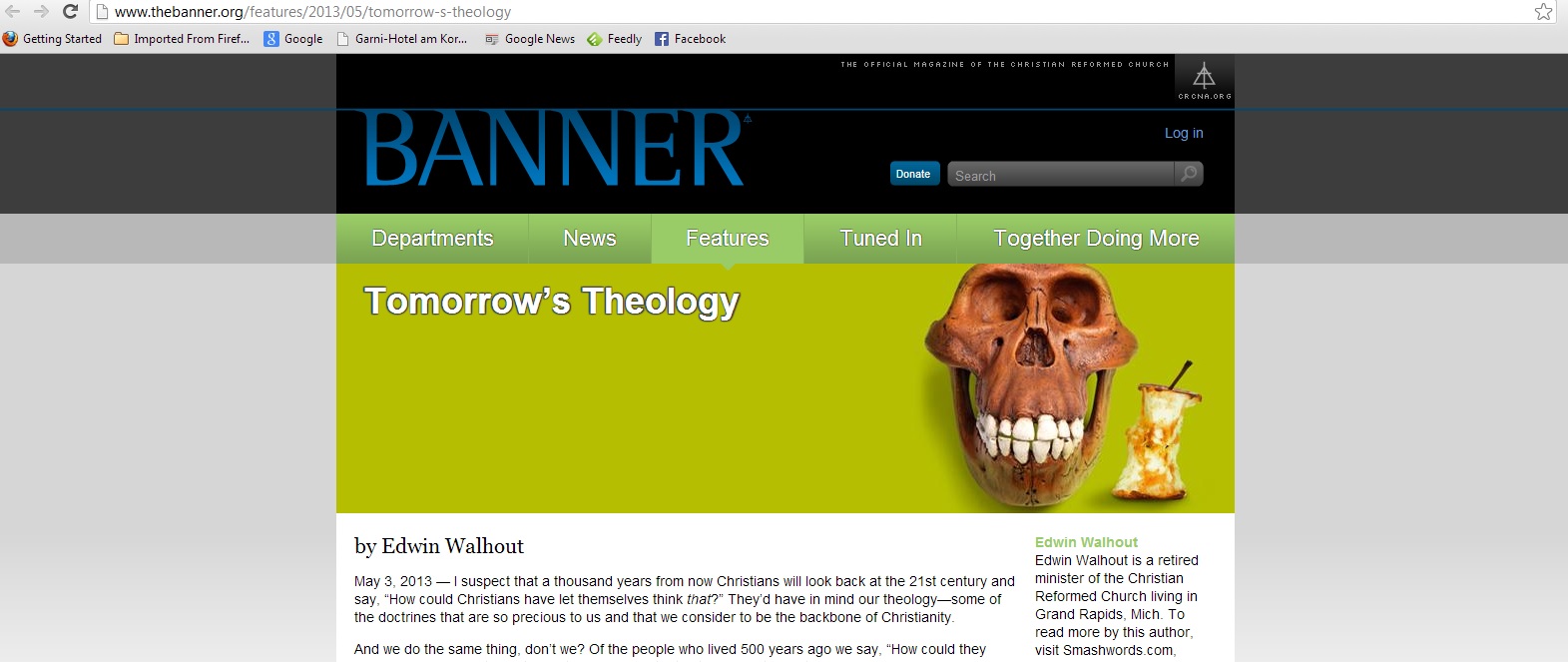Walhout Gets It


There’s lots of buzz today on Facebook and elsewhere over an article published by The Banner. In this article, retired CRC minister Edwin Walhout explains how the established fact of evolution “will bring vigorous theological revision for generations to come.” Because evolution is so obviously true, he writes, many Christians doctrines will need to undergo revision in the coming years, including our doctrine of salvation.
I can’t say that I’m surprised to read this in The Banner. Views along this trajectory have found a home in the Christian Reformed Church for about two decades already. Walhout just sees things through to their logical conclusion. He can be commended for his honesty and his desire to be consistent. Toss out Adam and Eve as the direct handiwork of God (created out of the dust of the earth) and Walhout’s views are where you ought to end up. Not everyone does, mind you, but they should, just for the sake of consistency.
These views are at home in the Christian Reformed Church. My conviction is that they have no place in the Canadian Reformed Churches and I will do everything in my power “to oppose, refute and help prevent such errors” — this I have promised to do. As I have said before, let no one kid you about how the acceptance of theistic evolution leads consistently to an overhaul of Reformed theology and ultimately to a denial of the biblical gospel. Walhout mentions creation, the fall into sin, original sin, salvation, and eschatology. He hints that he could have said more.
Cornelius Van Til, himself a son of the old school Christian Reformed Church, often wrote about epistemological self-consciousness. This was a technical term that Van Til used to describe the person who becomes aware of their theory of knowledges, the limitations it imposes, and its full implications. The epistemologically self-conscious person has a light-bulb moment. One of my favourite examples is from Calvin and Hobbes. Calvin is writing a math test. Faced with an impossible question like 3 x 5, he answers, “I cannot answer this question because of my religious beliefs.” Indeed, on his own principles, the unbeliever should not be able to do math and answer simple questions. Rev. Walhout has reached a moment of epistemological self-consciousness. He recognizes that, with his evolutionary presuppositions, Reformed theology cannot remain tied to its Reformation confessional roots. A revolution is necessary. Walhout gets it. I’m sure the CRC will continue to be happy to have him as an emeritus minister in good standing.


